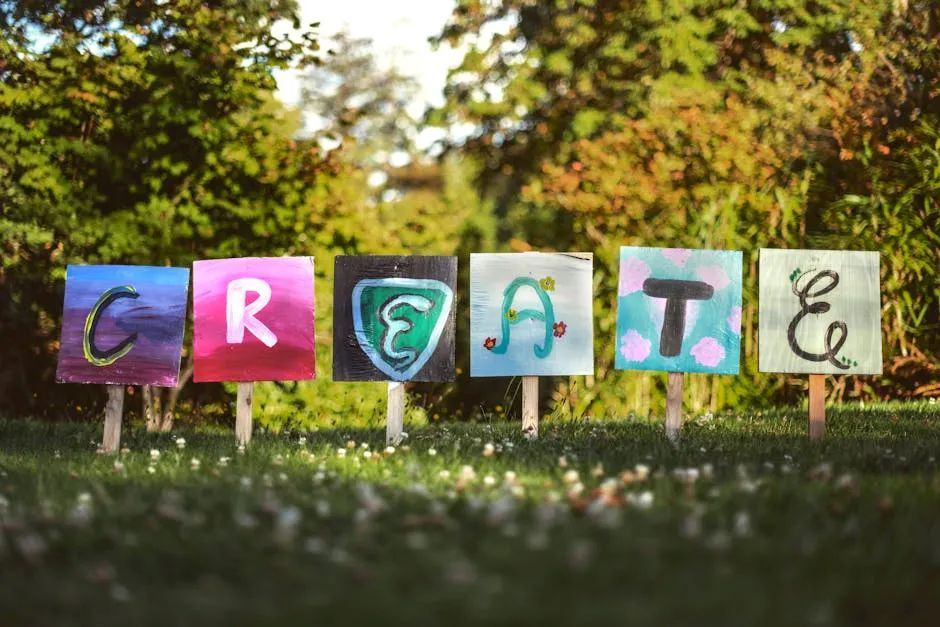Neuroscientist:This Simple Habit Will Boost Your Creativity by 200% (youtube.com)[1]
这个简单习惯提升200%创造力[2]
介绍
本篇内容探讨了如何通过简单的习惯提高创造力。
神经科学家提出,将大脑置于放松状态可以帮助我们更快地解决问题。
在这种状态下,我们可以访问和利用更广泛的规则集来提出新的解决方案。

如何提高创造力
在我们的大脑中,"规则集"可以被理解为我们在做决策和解决问题时所依赖的各种已知的策略、知识、经验和直觉。
这些规则集可以是具体的,比如数学定理,也可以是抽象的,比如创造性思维的策略。
当我们处于放松的状态时,我们的大脑不再受到紧迫任务的压力,可以更自由地探索和连接这些不同的规则集。
这种状态类似于我们在散步、冥想或即将入睡时的心理状态,大脑的思维活动更加自由和不受约束,这有助于我们"跳出"常规的思维模式,探索和尝试新的、不同寻常的或甚至是看似不相关的规则集。
例子
举个例子,如果你是一名产品设计师,你的常规规则集可能包括用户体验、市场趋势和设计原则等方面的知识。
然而,在放松的状态下,你的大脑可能会开始探索其他领域的规则集。
比如你在观看电影时了解到的关于叙事技巧的知识,或者你在做饭时体会到的关于食材搭配的直觉。
通过将这些看似不相关的规则集应用到产品设计的过程中,你可能会提出一些创新的、能够为用户带来新鲜体验的设计理念。
因此,通过简单的习惯来提高我们的放松状态,可以帮助我们更有效地访问和利用更广泛的规则集,从而提高我们的创造力和问题解决能力。
这也解释了为什么一些伟大的创意和灵感往往会在我们放松、休息或做一些与工作看似无关的活动时涌现出来。

践行步骤
-
设定目标:为你想要解决的问题或你的创造性任务设定一个明确的目标。
-
放松大脑:通过冥想、散步或其他任何可以帮助你放松的活动,将你的大脑置于一种放松的状态。
-
信任过程:相信一旦你进入这种放松的状态,你的大脑会开始寻找解决你的问题的新方法。
-
保持开放:在这个过程中,保持对新想法和新规则集的开放性。
-
实践和反思:将这些新想法付诸实践,并在实践中不断反思和调整你的方法。
中英全文
1 It's clear that the more we can be in a relaxed state, the more quickly we can solve problems. That's absolutely clear. It's clear that creativity is the combining of existing rule sets, but also coming up with completely novel rules sets. When was the last time any of us took a walk and thought, "How do I completely fracture my notions of the rules in a given domain and think about truly new ones?" It's hard to do, but once you set, for lack of a better word, the intention around that, I do believe that when you enter sleep states, the brain tries to solve the most important problems that are happening in your daily life. You have all the necessary rule sets to complete all the demands of your daily life, from parenting to podcasting to running your clinical practice, and on and on. So, you know how to toggle between those, you know not to apply one rule set in the wrong context, and you just go, go, go, go, go. And there's an energetic cost to that. When we are singularly focused on one context, even if it's one conceptual context, you still have the same amount of total neural architecture. Right now, it's just concentrated, just devoted to that. I mean, I still have images burned in my brain of neural tissue looking that I was viewing down the microscope. I can close my eyes and still see it now. I don't have a photographic memory. I used to have an audiographic memory where I could turn on a recorder in my head and then I could listen back to those conversations in the evening. A very dangerous thing to have, actually, and to get into an argument with me at that time was no good. But, because I could remember what you said. I lost that ability, and I think I lost that ability not because I truly lost it, but I'm thinking about other things now, and that was kind of a useless ability, frankly. I think, ultimately, being fairly narrow context and being able to access these broader rule sets and come up with new rule sets is incredibly powerful. Now, there are certain states of body and mind that favor this creativity process, if we can call it that. Even though our ability to be gritty and to survive allows us to access a number of important rule sets, we know, based on the relationship between stress and survival, that those rule sets are constrained.
很明显,我们越是能处于一种放松的状态,我们解决问题的速度就越快。
这一点是绝对清楚的。
创造力是对现有规则集的组合,但也是对完全新的规则集的提出。
我们上次什么时候在散步时想过,"我如何完全打破我对给定领域的规则的认识,并思考真正新的规则?"
这很难做到,但一旦你为此设定了目标,我确实相信,当你进入睡眠状态时,大脑会试图解决你日常生活中最重要的问题。
你拥有完成日常生活所有需求的必要规则集,从育儿到播客,再到经营你的临床实践,等等。
所以,你知道如何在这些需求之间切换,你知道不要在错误的情境中应用某一规则集,你只是不断地前进。这是一种能量成本。
当我们专注于一个情境时,即使是一个概念性的情境,你仍然有相同数量的总神经结构。
现在,它只是集中的,只是致力于那个目标。
我的意思是,我仍然能在我通过显微镜观察到神经组织中烧毁的图像。
我可以闭上眼睛,现在仍然可以看到它。
我没有摄影记忆。
我以前有一种听觉记忆,我可以在我的脑海中打开一个录音机,然后我可以在晚上回听那些对话。
实际上,这是一种非常危险的能力,并且在那个时候与我争论是没有好处的。
但是,因为我可以记住你说的话。
我失去了那种能力,我认为我失去了那种能力不是因为我真的失去了它,而是我现在在考虑其他事情,而且那种能力实际上成为是一种无用的能力。
我认为,最终,能够在相当狭窄的情境中访问这些更广泛的规则集,并提出新的规则集是一种非常强大的能力。
现在,有某些身体和心理状态有利于这个创造力过程,如果我们可以这样称呼它。
尽管我们的坚韧和生存能力使我们能够访问许多重要的规则集,但我们知道,基于压力和生存之间的关系,这些规则集是受到限制的。
2 So, I put you into a dangerous situation where you need to protect your family, you're going to figure it out. I trust you, I know that. I know you're going to work it out, but I also believe that there is a state of love that is associated with access to a much broader rule set and creative rule set. And how do I know this? It's because it underlies our evolution as a species. The number of different things that you can do to access survival if you're taking care of your family is immense, but the number of different adaptations that you can come up with in order to raise your children to be as happy and healthy as they can be, out of love, is absolutely infinite. Why? Because it really is, there's no other option. You're not fearing death, what you're doing is you're trying to access this landscape of you want them to be as great as they can be. You don't know how great they can be, that's the infinite rule set. And so, not having constraints on what the outcome is, is really the way to access expanded rule sets. It's very clear that accessing these brain centers that have full understanding of internal state, and then full understanding of past, present, and future, that is absolutely the best state to be in in order to access expanded rule sets and ever-expanding rule sets. Whereas, anytime I'm accessing knowledge about internal state, but it's constrained by outcome, I need this not to happen, you've already shut down a number of rule sets. Right, so anytime, and this is why I think in dreaming, we aren't constraining our rule sets. We all wish we could, but we're not constraining our rule sets. It could be a nightmare, could be the best fantasy we've ever had, you can fly, all these things. The rule sets are infinite, but constrained by experience. We're not aware yet that we can dream about things in a way that does not reflect what we've already experienced. We might be able to, we don't know enough about sleep and dreaming yet. The idea here is that placing one's mind and body into states of love, or um, we could also anything that's doesn't include a but not that, is an expanded rule set. The moment I decide what's appropriate and inappropriate behavior, I've now started to constrain the rule sets.
所以,如果我把你置于一个危险的情况,你需要保护你的家人,你一定会想办法的。
我相信你,我知道。我知道你会解决的,但我也相信,有一种与爱相关的状态,可以访问到更广泛的规则集和创造性的规则集。
这是如何知道的?
因为它是我们作为一个物种进化的基础。
如果你在照顾你的家人,你可以采取不同的生存方式,但你可以提出不同的适应方式,以便你的孩子们能够快乐和健康,这是绝对的。
为什么?
因为它确实是,没有其他选择。
你不是害怕死亡,你在做的是,你在试图访问这个你希望他们能够尽可能伟大的景观。
你不知道他们能有多伟大,这就是无限的规则集。
所以,不对结果有任何限制,是真正访问扩展规则集的方式。
很明显,访问这些对内部状态有充分理解的大脑中心,然后对过去、现在和未来有充分理解,这绝对是访问扩展规则集和不断扩展规则集的最佳状态。
而且,任何时候我访问关于内部状态的知识,但它是由结果限制的,我需要它不发生,你已经关闭了一些规则集。
所以,任何时候,这就是为什么我认为在梦中,我们不是在限制我们的规则集。
我们都希望我们能够,但我们不是在限制我们的规则集。
它可能是一个噩梦,可能是我们曾经有过的最好的幻想,你可以”飞”,所有这些事情。
规则集是无限的,但受到经验的限制。
我们还没有意识到,我们可以梦见一些不反映我们已经经历过的事情。
我们可能,我们还不知道足够的关于睡眠和梦想。
这里的想法是,把一个人的思想和身体置于爱的状态,或者我们也可以任何不包括但不是一个扩展的规则集。
我决定什么是适当和不适当的行为,我现在已经开始限制规则集了。
3 Okay, so we can go around and around this circle as much as we want, or as little as we want, but I think that once people start to understand what places their body and mind into the most relaxed and quote unquote open state for accessing new rule sets, the more quickly we can solve problems. That's absolutely clear. Or, if I give you cognitive tasks and I just ramp up your level of autonomic arousal, and we do this in my lab, are there any number of different ways to do this, you can function up to a point, but it's mainly dependent on how well you have performed that thing in the past. I give you something novel, I switch the contingency, I give you kind a more advanced Stroop type task, everybody Cliffs. I don't care if you're a Seal Team Six guy, I don't care if you've run three countries, I don't care if you've parented 12 kids on your own, your rule sets are constrained, and so I throw something novel at you under conditions of even mild stress, and you break down. I throw something novel at you under conditions of relaxation, and you can pull from what might even seem like ridiculous rule sets, and you can start solving problems. And humans do this exceptionally well, and so I think that the more we can narrow context, as you said, just medical school or math or parenting, whatever it is, more that we can narrow context, even if in the moment, but the more that we can be in a relaxed State, an ideally a state of something of wanting, not avoiding, the more rule sets we can access. And I think that's where creating Solutions come from. I mean, I have to imagine that even though he's a brilliant engineer, that Elon wasn't thinking about going to Mars because he hated Earth, he's thinking about it because he loves the idea of going to Mars. I'm not his psychologist, but I think every major advancement in human evolution has largely been, largely from a desire for something as opposed to an avoidance of something else.
好的,所以我们可以根据需要,绕这个圈子走很多次,或者很少次,但我认为,一旦人们开始理解什么能让他们的身体和思想进入最放松和引用引用开放状态,以访问新的规则集,我们可以更快地解决问题。
这一点非常清楚。
或者,如果我给你认知任务,我只是提高你的自主唤醒水平,我们在我的实验室这样做,有很多不同的方法,你可以在一定程度上发挥作用,但这主要取决于你过去在这一点上的表现。
我给你一些新颖的东西,我切换应变,我给你一种更先进的Stroop类型任务,每个人都会崩溃。
我不在乎你是Seal Team Six的人,我不在乎你是否经营过三个国家,我不在乎你是否独自抚养了12个孩子,你的规则集是受限的,所以我在轻微压力的条件下向你抛出一些新颖的东西,你就会崩溃。
我在放松的条件下向你抛出一些新颖的东西,你可以从看似荒谬的规则集中汲取,你可以开始解决问题。
人类在这方面做得非常好,所以我认为,正如你所说,我们可以缩小背景,就像医学院、数学或育儿,无论是什么,我们可以缩小背景,即使是在当下,但我们可以处于一种放松的状态,理想状态是一种渴望的状态,而不是回避状态,我们可以访问更多的规则集。
我认为这就是创造解决方案的来源。
我的意思是,我不得不想象,即使他是一位杰出的工程师,埃隆也不是因为他讨厌地球而想去火星,他之所以这样想,是因为他热爱去火星的想法。
我不是他的心理学家,但我认为,人类进化的每一个重大进步,很大程度上都是出于对某事的渴望,而不是对其他事情的回避。

结束
参考资料
[1]
Neuroscientist:This Simple Habit Will Boost Your Creativity by 200% (youtube.com): https://www.youtube.com/watch?v=QmUr-eD4tuU&t=4s
[2]
这个简单习惯提升200%创造力: https://www.bilibili.com/video/BV1UZ421n7JJ/?spm_id_from=333.999.0.0&vd_source=1d44f7f1239b6bab3592038d5e406da0





















 511
511

 被折叠的 条评论
为什么被折叠?
被折叠的 条评论
为什么被折叠?








